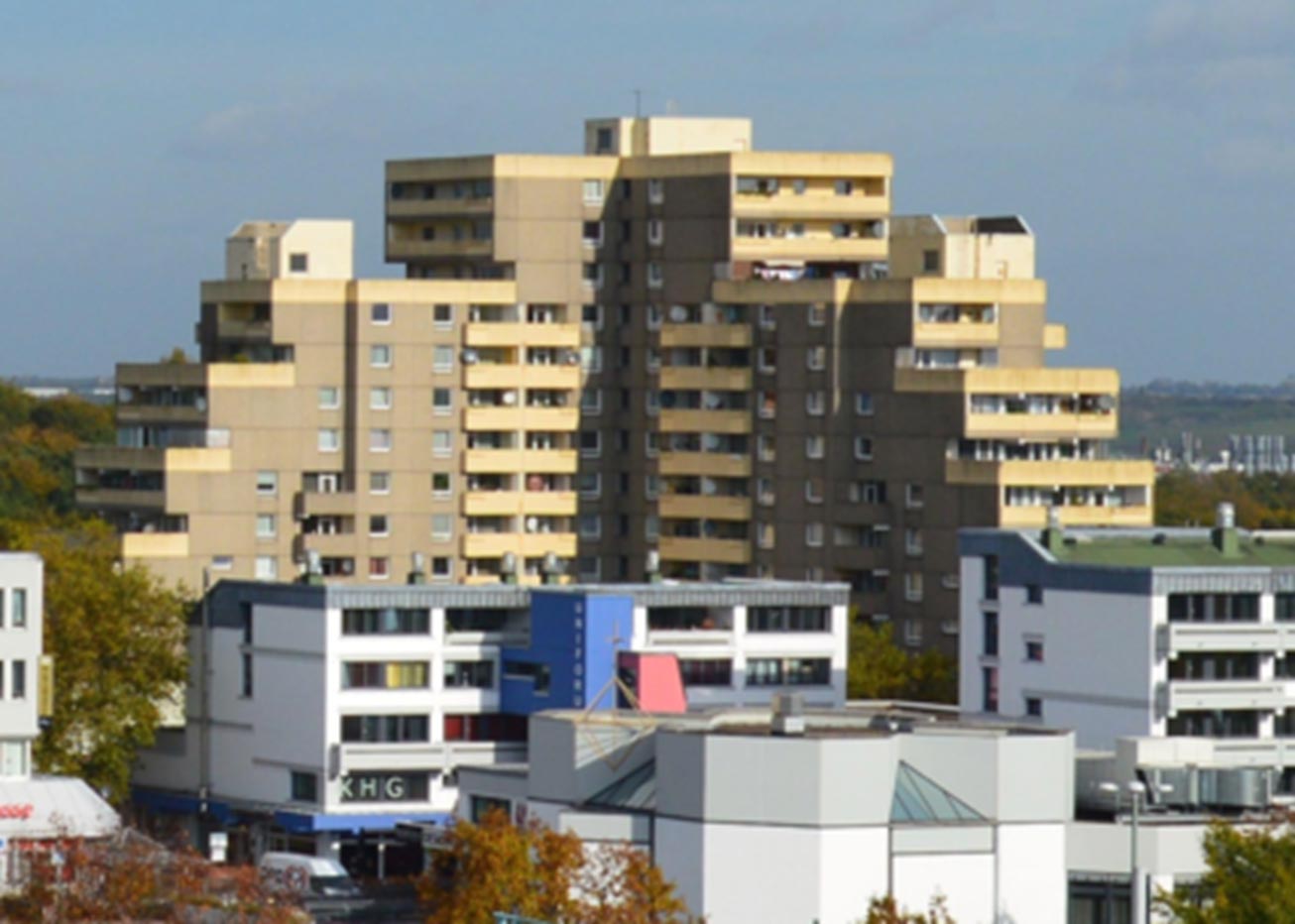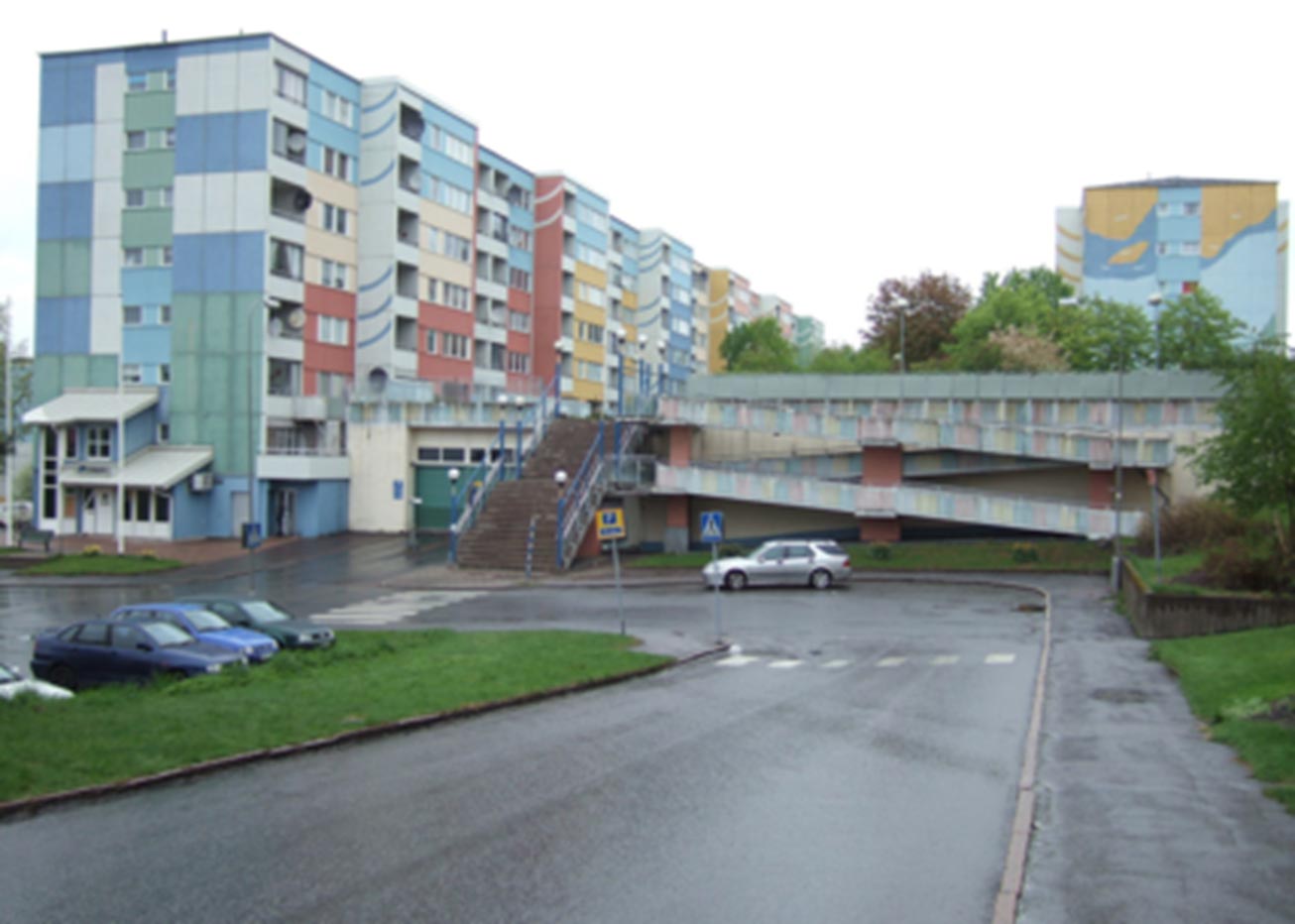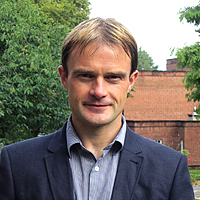Biography
Professor Simon Pemberton is a Professor of Human Geography at Keele University. His PhD was in Human Geography and on the subject of Local Government Reorganisation in Wales (1996).
During his career, Simon worked on several post-doctoral research projects (e.g. ‘Partnership Working in Rural Regeneration’; funder Joseph Rowntree Foundation 1998-2000) before becoming Head of Regeneration for a local authority in North Wales. After four years in practice, Simon moved to become Director of the Merseyside Social Inclusion Observatory at the University of Liverpool between 2004 and 2010. Subsequently, Simon moved to the Centre for Urban and Regional Studies (CURS) at the University of Birmingham and was Interim Director between 2012 and 2013.
In 2013 he moved to take up a position as Reader in Human Geography at Keele University and was promoted to a Chair in Human Geography in December 2016. His academic work has a strong policy application and bridges the geography-planning-public policy interface. He has research interests in three main areas: 1) The rescaling of the state and implications for rural and urban environments; 2) Superdiversity and the politics and policies of migration; and 3) Community-based planning. He has published widely in all of these areas.
Research and scholarship
My interests fall into three broad areas: 1) The rescaling of the state and implications for rural and urban environments; 2) Superdiversity and the politics and policies of migration; and 3) Community-based planning.
With regards to the rescaling of the state I am particularly interested in the ways in which the changing structures and scales of the state impact on both rural and urban areas. Much of my current work is exploring the importance of ‘scalar politics’ and how scale is strategically deployed in the context of previous scalar structures to develop practices of ‘scalecraft’, and the ways in which outcomes may vary according to local contestation and resistance. The most obvious example of this is local government reorganisation and building upon my doctoral thesis I have explored how the changing structures and scales of local government can privilege certain interests and actors above others.
My second area of research relates to superdiversity and migration. I have published extensively on the impacts of migration from the EU8 accession countries since 2004 and I am currently exploring the importance of neighbourhood in shaping both the experiences and outcomes of immigration. I am about to commence a major EU Norface research project with colleagues at Birmingham and across the EU on considering how immigrants access welfare in superdiverse neighbourhoods and the implications that arise.
My third area of research relates to community-based planning. This particularly focuses on the process of devolution in the UK and how this has provided opportunities for both divergence and convergence in community-based planning arrangements. As such, it connects with my first area of research as I am particularly interested in how the state has been ‘hollowed out’ and ‘filled in’ concurrently, and the extent to which the process and practice of community-based planning varies.
See the "Grants" tab on this page for information on the Planning Exchange Foundation-funded project "Exploring New Models of Community-based Planning in the Devolved UK"
Teaching
Year 1
- GEG -10013 Human Geographies (module leader 2014-15)
- GEG -10012 Practising Human Geography
Year 2
- GEG - 20015 Space and Society (module leader)
- GEG – 20010 Practical Human Geography
- GEG – 20018 Concepts and Debates in Geography
Year 3
- GEG-30010 Rural Geographies (module leader)
- GEG-30006 Dissertation
Publications
Grants
2021-2022 : "The EMPOWER Project" - Developing new methods of citizen empowerment and knowledge co-creation for gender-aware integration.
2015-2017 : "The importance of super-diverse places in shaping residential mobility patterns" .PI. Funder: The Leverhulme Trust. Amount: £49,884. (click on grant title to find more details of this project)
2015-2016: "Community-based Planning in a Devolved UK". PI. Funder: The Planning Exchange Foundation. Amount: £4,300 (total project cost: £25,000). (click on grant title to find more details of this project)
2015-18: EU Norface: Superdiversity and welfare state futures. Euros 1,400,000 (January 2015-January 2018) PI UK; CI overall
2013/14: Joseph Rowntree Foundation (JRF): Poverty and Economic Migration. Review of relationship between poverty and economic migrants. £18,154 (October 2013-May 2014). PI
2013: ESRC (+2 Progress ESRC studentship): Mobility, immobility and empowerment: The importance of place in shaping the educational outcomes of children in care, £37,236 (March 2013). PI
2011: Migrant Workers North West: A policy guide to the migrant cap on non-EU workers, £1,000, UK PI
2010: Migrant Workers North West: The economic and social impact of the migrant cap on non-EU workers, £5,000, UK PI
2009: Migrant Workers North West: Exploring migrant workers motivations for migration and their perceived contributions to the UK, £5,000, UK, PI
2009: Liverpool Community Network: Educational support for Black and Racial Minority (BRM) children and young people in Liverpool, £3,820, UK PI
2008: Skills for Care: Developing a Good Practice Guide to the Recruitment and Retention of International Workers within the Social Care Sector, £20,000, UK, PI
2007: North West Development Agency: Social inclusion and the Regional Economic Strategy, £50,000, UK, PI
2007: Warwickshire County Council: Reducing inequalities in Warwickshire, £6,500, UK, PI
2006: Merseytravel: Diversity audit of the provisional Merseyside Local Transport Plan (LTP) 2, £36,349, UK, PI
2005: Sefton Metropolitan Borough Council: Causes and consequences of worklessness, £5,000, UK, PI
2005: Wirral Metropolitan Borough Council: Economic Market Research – BME communities within Wirral’s neighbourhood renewal areas (NRAs), £18,700, UK, PI
2005: Wirral Metropolitan Borough Council: Economic Market Research - Thriving Local Economy: Small Businesses,£29,465, UK, CI
2005: Learning and Skills Council: BME analysis Greater Merseyside, £2,500, UK, CI
2005: Sefton Metropolitan Borough Council: Exploring causes and consequences of migration in / out of Sefton’s NRAs, £18,700, UK, PI
2004: Liverpool City Council: ‘State of Deprivation’ report, £33,450, UK, PI
Exploring New Models of
Community-based Planning
in the Devolved UK
(funded by the Planning Exchange Foundation; published October 2016)
Authors: Dr Simon Pemberton, Keele University and Professor Deborah Peel, Emeritus Professor, University of Dundee
Context to research
Given the range of initiatives emerging in the broad field of community-based governance, the aim in carrying out this research was to critically reflect on the separate developments that have taken place across the devolved UK, and to see what shared learning may be derived from the different approaches to designing and implementing community planning.
In particular, the purpose of this study was to tease out practitioner experience and critical reflections on such issues in the design and delivery of local public services in England, Scotland, Wales and Northern Ireland, with a view to better understanding how community planning is operating on the ground.
Research objectives
Informed by these debates, the study was designed around six main objectives:
- To identify and explain the legislative, policy and organisational arrangements for community-based planning across the devolved UK.
- To identify models of joint-working under community-based planning.
- To explore how joint-working relations are designed, organised and managed.
- To consider the implications arising in respect of the interests reflected within joint-working arrangements and issues of community engagement.
- The relationship between community planning and land use planning.
- To identify research priorities for enhancing joint-working in community-based planning and links with land use planning.
Key findings / research priorities emerging from the research
Key findings that emerged from the research were as follows:
1. Nomenclature of community planning: The nomenclature of community planning infers that communities lie at the heart of this field of policy and that it involves a forward-looking – or vision-oriented - activity. However, for some of those interviewed, the view was that communities had quite limited powers, and the term ‘community planning’ was ambiguous – if not misleading.
2. Community planning as evolving policy: Some concerns were raised in relation to the iterative, organisational restructuring and inevitable transaction costs involved in devising new structures and processes of community planning. Many expressed the view that developments in community planning effectively represented a certain fine-tuning, or pragmatism in relation to what was – or was not working. As partnership working is framed in terms of statutory duties, it is important to understand what this context will mean for joint-working of a more informal and cooperative nature in the context of community planning.
3. The governance of community planning: Key findings that emerged from the study pointed towards the importance of a duty on partners to participate in all aspects of the community planning process, the potential of pooling budgets to secure integration of activities, the potential impact of further local government reorganisation on the development and continuity of joint-working relations, and the need for (land use) planning officers and those involved with the community plan to be linked from the outset. In addition, pertinent questions arose over the extent to which those most transient or seldom heard should, or could, be involved in community planning structures, and the impact of previous working experiences on governance relations.
4. The scaling and re-scaling of community planning activity: A number of responses to securing cross-scalar working emerged from the research - for example, the use of master-planning in setting out a framework for securing integrated working. Strong leadership was also noted as helping to facilitate joint-working relations with other partners beyond the local area in order to deliver the priorities in the local community plan.
5. Politics, power and community planning: The changing structures and scales of state activity can both influence – and also be influenced by – the nature of local politics and local political strategies. In turn, the outcome of this relationship can shape processes and structures of community planning. As the structures for governing community planning evolve, so too will the dominant forces, and the strategies that are pursued. Hence ‘objects of governance’ for community planning may be differentiated and focused towards some interests and collaborations over others, some spatial scales of intervention over others, and some time horizons over others.
EMPOWER The Empowering Cities of Migration project
EMPOWER The Empowering Cities of Migration project
Funded by the ESRC (UK), FORMAS (Sweden) and FFG (Germany) respectively, the Empowering Cities of Migration project (EMPOWER) empowered local residents in three European cities (Birmingham, UK; Bochum, Germany; and Gothenburg, Sweden) to work with housing, migration and planning specialists on creating new approaches to housing and integration, and which help to avoid segregation and exclusion in diverse urban places.
Download a copy of the full report here
The project responded to the call on Urban Migration, issued by the transnational Joint Programming Initiative (JPI) Urban Europe. This focused on bringing together transdisciplinary and cross-sectoral communities of researchers and practitioners to create projects that aligned, synthesised or consolidated already existing knowledge on urban migration across disciplines on national and local levels. The overall intention was to facilitate knowledge transfer and learning from different European contexts, cities and countries to create greater engagement and understanding in migrant as well as host communities.
EMPOWER created and trained a new group of community-based researchers drawn from neighbourhoods in Birmingham (Smethwick), Bochum (Inner Hustadt and Uni Center) and Gothenburg (Bergsjön) - which have recently experienced considerable changes in their populations as a consequence of international migration. The aim was to develop a better understanding of the integration experiences and strategies of migrants in their own localities but through adopting a ‘whole community’ approach which considered the challenges and opportunities facing migrant and non-migrant communities. In addition, the EMPOWER project facilitated better gender-aware knowledge for migrant integration by engaging migrant women in the process of shaping housing provision in their communities.
Project partners:
- Professor Simon Pemberton, Keele University (UK) - Overall project lead
- Dr Lisa Goodson, University of Birmingham (UK) - UK partner
- David Newall, Brushstrokes (UK) - UK partner
- Professor Christiane Falge, University of Applied Sciences, Bochum (Germany) - Germany project lead
- Friederike Müller, IFAK e.V. (Germany) - Germany partner
- Associate Professor Gabriella Elgenius, University of Gothenburg (Sweden) - Swedish project lead
- AnnSofie Olsson, Community Centre, Swedish Church - Swedish partner
Overall aim and objectives for EMPOWER:
Overall Aim: To develop new methods of citizen empowerment and knowledge co-creation for gender-aware integration in areas subject to increasing population diversity.
Research project objectives:
Objective 1: To recruit, upskill and empower Citizen Researchers (CRs) to engage with migrants and host communities in areas subject to increasing population diversity and to co-create new knowledge on the housing needs of what is often defined as “hidden groups and communities”.
Objective 2: Through a ‘whole community’ approach, develop participatory gender-aware insights into housing challenges of relevance to local communities and in so doing address segregation and discrimination in the housing market in areas of population diversity.
Objective 3: To undertake a wider stakeholder engagement and thereby contribute towards empowering local residents and stakeholders to work with housing and urban planning specialists to inform gender-aware housing strategies and policies which tackle problems of housing affordability, segregation and discrimination in areas of increasing population diversity.
Overall project lead: Professor Simon Pemberton (Keele University, UK)
Professor Simon Pemberton is a Professor of Human Geography at Keele University. His research has made internationally significant contributions in two very important areas: new migration and ‘super-diversity’; and the restructuring and rescaling of the state. To this end, he was the recent holder of a prestigious Leverhulme Fellowship exploring the residential mobility of new migrants. Furthermore, he was also the lead UK investigator in a £1 million NORFACE-funded project exploring health-seeking practices in super-diverse areas.
Simon has managed over forty large research projects from proposal to completion and has published over ninety peer-reviewed papers and reports. His work has also informed and significantly influenced the work of national and local governments, trade unions and local community partnerships.




Value and term
The total value of the EMPOWER project was 290,899 Euro. It ran between April 2021 and December 2022.
“The EMPOWER project - supported in the UK by the ESRC, FORMAS and FFG - brings together the research of academic researchers, NGOs and other key stakeholders in three different countries to work on citizen empowerment and integration activities. The emphasis will be on exploring the ways in which local resources – including the use of new and existing property, public spaces, transport systems and health, employment and education facilities - can be used or re-purposed to meet the needs of all citizens living in diverse areas”
(Professor Simon Pemberton, Project Lead, Keele University, UK)
School of Geography, Geology and the Environment
William Smith Building
Keele University
Staffordshire
ST5 5BG
Tel: +44 (0) 1782 733615
School email: gge@keele.ac.uk


